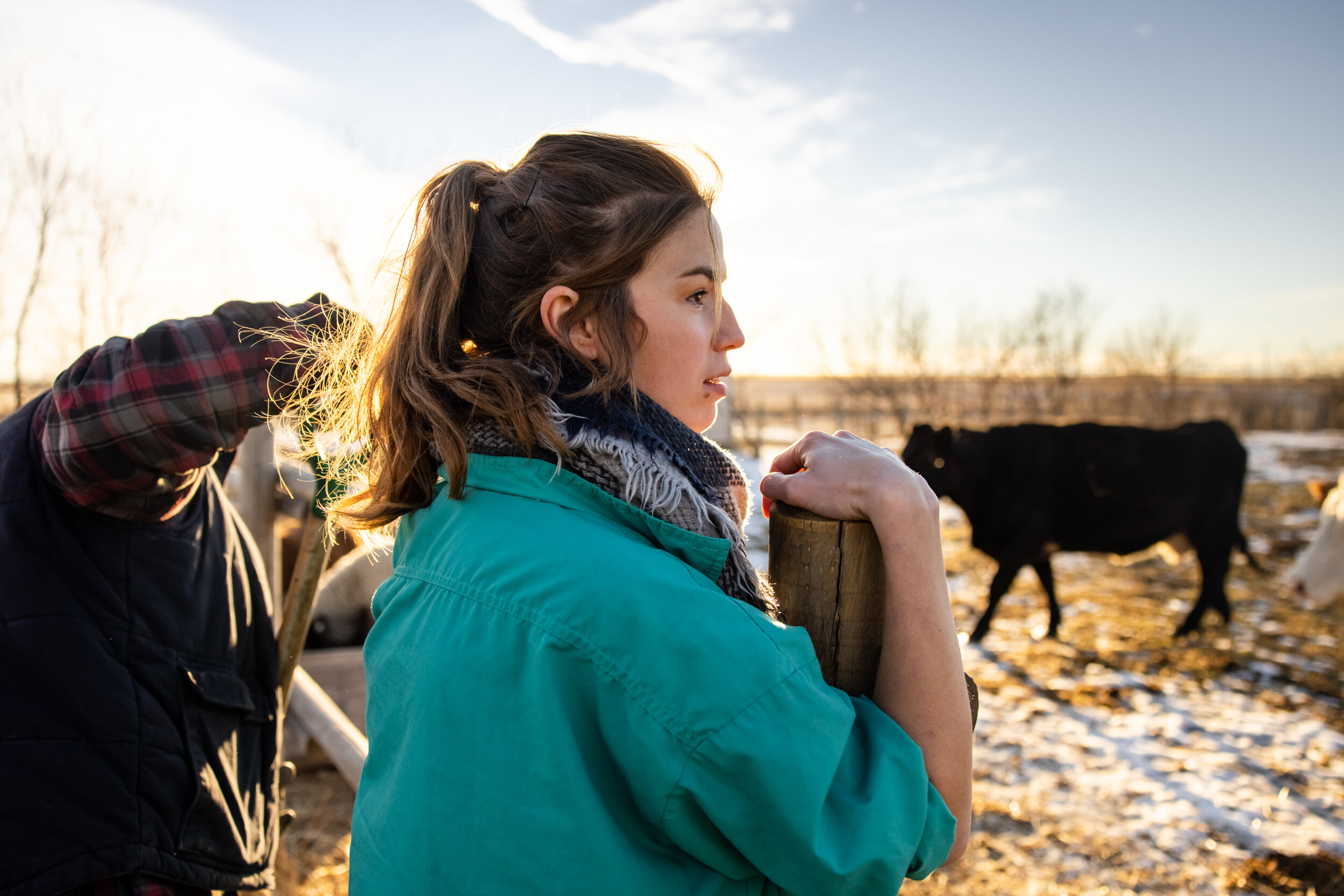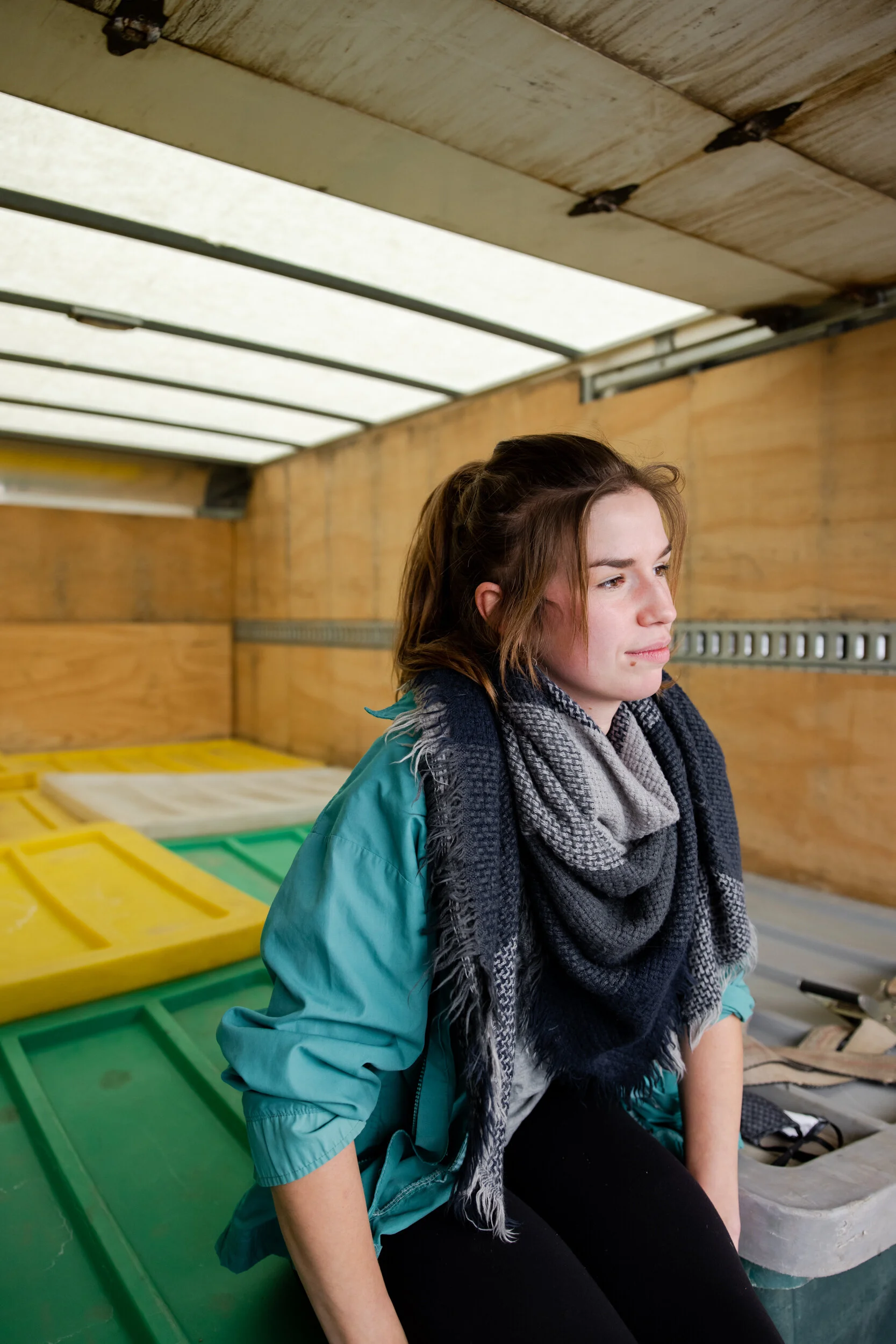aGRO Systems
aGRO Systems
WORDS BY TRAVIS KLEMP
PROFILE
After a long day of conjuring up and brewing their latest creation, the brewers at Cold Garden Brewing Company or Annex Ale, or any of the long list of breweries in Calgary are (probably) sitting down to have a beer. Maybe they're not, this is purely an assumption based on how dangerously irresponsible it would be for me to work at a brewery. Nevertheless, after brewing, aside from the delicious craft beer that comes from the process, the now spent grain makes for a hefty amount of waste. And removing said waste can be expensive, cumbersome and wind up in landfills.
This is where Victoria Ross and the Calgary-based business Agro Systems comes in. Ross finds that the spent grain from the brewing process is not waste at all and rather can have a significant impact on the local farming industry and the rapidly growing craft brewery scene.
Ross works with smaller breweries who may not have the ability to dispose of their grain because of infrastructure constraints or lack of necessary machinery, to pick up their grain and then partner with farmers to repurpose that grain for livestock feed.
“We have much more efficient compost bins that collect what comes from the mash tonne and easily fit into our vehicle. We pick up about 30 bins per day, about 50 tons per week,” says Ross.
Agro Systems has partnered with 29 breweries and one cidery in the Calgary and surrounding area to provide this service. All these partnerships are based on the idea of helping local farms. If any brewery or cidery has previous relationships or deals set up with a farmer, Ross does not interfere in any way.
“It defeats the purpose of helping get affordable feed, which is the main goal, if we are damaging already created relationships we aren’t helping,” Ross says.
Maybe some background is necessary. Spent grain is not something most of us think about when crushing a sixer during the sports match or drinking a curated pack of local IPAs, pilsners and some new porter that is thicker than oil and infused with, I don’t know, sandalwood (?). Both scenarios actually sound pretty fun. And in both, there was definitely a time where people consumed and did not consider the impact their consumption had.
“Agro systems has positioned ourselves as someone who is attempting to manage of the inputs and outputs of the agriculture industry to make food production more sustainable and profitable for small scale producers,” says Ross.
In beer, spent grain accounts for about 85 per cent of the total brewing byproduct. Roughly 175 kilograms of grain is used to make 1,000 litres of beer, or 120 flats of delicious Keystone Light. Throughout the brewing process malted barley is mixed with water to convert the starch into a sugary liquid. The grain is separated out and the liquid becomes the brewing water, which is boiled, flavoured with hops and fermented into beer.
That is a tremendous amount of leftover spent grain that, in past years, has gone to landfills where greenhouse gases like methane and CO2 are released at alarming rates.
Agro Systems currently only offers farmers the raw grain rather than producing their own feed - though it is in the plans to eventually do so.
“Basically, we arrive home after picking up the grain and the farmers meet us there and we dump directly into their trailers or we can deliver to farms and the farmers can use that as a really high fibre, high protein supplement for something like dry straw. If dried out it would be about 25% crude protein as opposed to most standard feed being about 12-13%,” says Ross.
These supplements are generally expensive for farmers, especially family farms that are already faced with the massive impact factory farming has on the industry. Making a living as a cattle farmer gets increasingly difficult every year.
Ross’ elevator pitch for Agro systems reflects an in depth knowledge of that difficulty and the need to address it.
“Agro systems has positioned ourselves as someone who is attempting to manage of the inputs and outputs of the agriculture industry to make food production more sustainable and profitable for small scale producers,” says Ross.
She continues, “I’ve always been someone who supports local, small to mid-scale farming operations because they have a more diversified nature and something more inherently sustainable than larger scale farms.”
Ross grew up watching her father, a cattle rancher himself, having to work multiple jobs and leave home after working all day on the farm in order to make ends meet at home.
“It was frustrating to watch someone do something they love to do and that is good for people and still struggle so much. When I got to university I found that this was common for roughly 50% of farmers to have a second income and that didn’t make sense when we have such a high cost of food,” says Ross.
Agro Systems itself stemmed from an idea that Ross had in a science fair growing up that she pitched to one of her professors and was given the green light to expand on it. The project involved using aquatic plants to filter livestock wastewater for purposes to reusing it. When the idea garnered attention across North America and began to grow, Ross started to see where she wanted things to change.
“It started to become pretty clear that the project would cost millions of dollars to get to market and would really only serve large-scale operations which wasn’t what I wanted to do. Then a little while after, Grizzly Paw Brewing in Canmore came to me and asked if the system could be used on grain waste,” says Ross.
At the time, Ross didn’t have the ability to do what the brewery was asking but it sparked her interest, and she began researching what other breweries were doing across Canada. She found that with the aquatic plants she already had and the spent grain, a valuable feed could be created.
She was able to partner with a local brewery, Common Crown – who, in 2020, won best brewery in Canada – for a pilot project and found a random farmer on kijiji to use it. From there, a truck was leased, and one client was turned into 17 within two months.
Today, along with the help from her father who has since moved from BC, Ross and Agro Systems hope to continue their research with aquatic plants and spent grain to grow their operation and offer smaller scale farmers an opportunity to make a living more consistent with the price of meat.
While the farming industry may be fraught with shortcomings in the way of emissions, treatment of animals and at times detriment to the environment, it is no secret that diversified, local farms are far less harmful to our earth than large scale, factory farms and can even at times improve the land being used.
Ross believes that diversification of agriculture is necessary and supporting local farms in key.
For more on aGRO Systems visit their website.






















